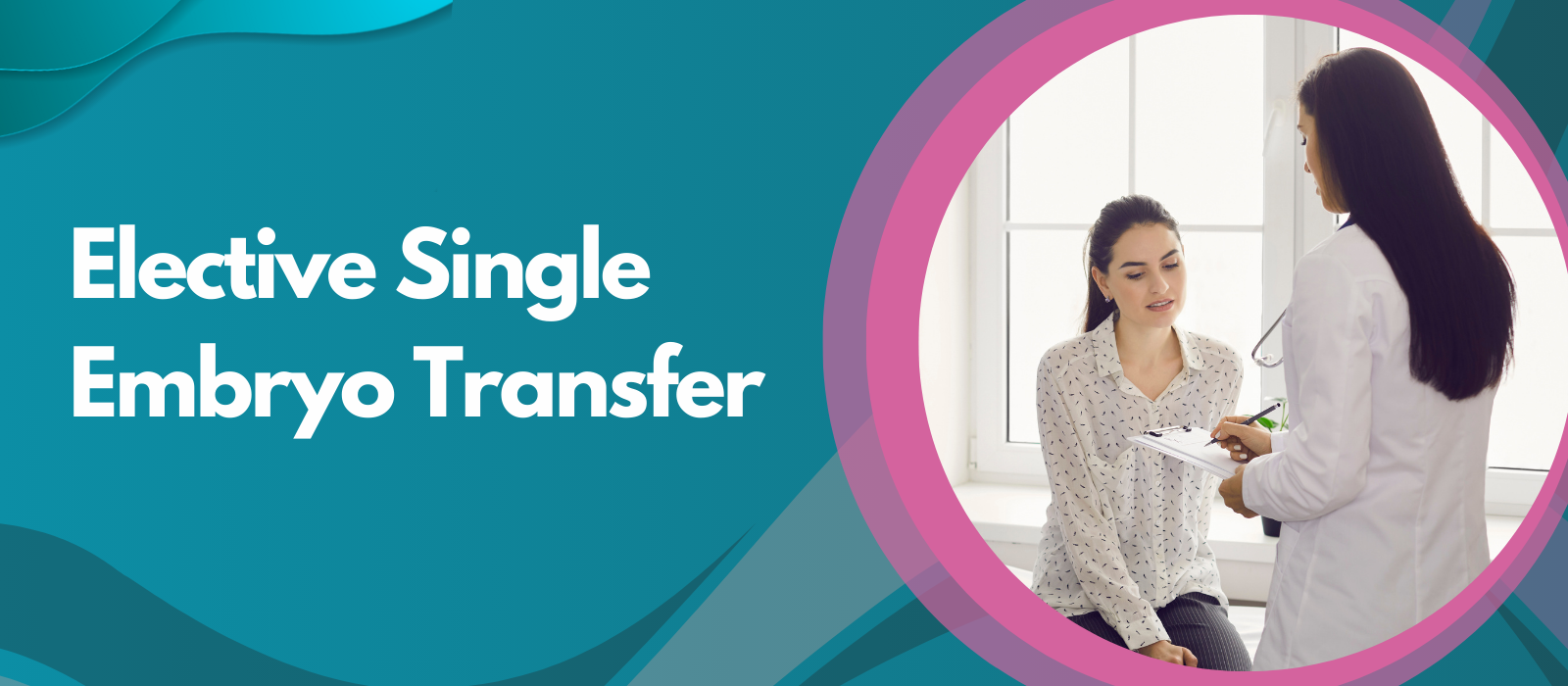
Elective Single Embryo Transfer in Ahmedabad
Nisha IVF Centre is a leading fertility hospital in Ahmedabad known for its advanced infertility treatments with high success rates.
We are at the forefront of offering safe and reliable treatments beneficial to the mother and the baby.
One such treatment provided by us is Elective Single Embryo Transfer. This treatment minimizes the chance of multiple pregnancies, which carries with it many health risks.
Our expert fertility specialists in Ahmedabad at Nisha IVF Centre will help you decide whether to undergo an IVF cycle using Elective Single Embryo Transfer after proper evaluation and discussion.
What is Elective Single Embryo Transfer?

Elective Single Embryo Transfer (eSET) is a process that transfers a single embryo during IVF into the uterus even though there are multiple healthy embryos available.
Generally, when you undergo IVF, medications are given to develop more eggs. These eggs are then fertilized with the sperm. After fertilization, several embryos are transferred to your uterus.
Why the need for elective single embryo transfer?
The main aim of eSETis to reduce the multiple pregnancy rate associated with IVF.
Transferring several embryos during IVF increases the risk of having multiple births.
According to data, around 30% of IVF pregnancies are twin pregnancies whereas about 3- 4% are triplet or more.
Fill Out the Form Below for an instant Appointment with the Doctor
Why should you avoid multiple pregnancy?
Multiple pregnancy can be dangerous for both the mother and fetuses.
It can lead to the following health concern in the mother, such as:
- Premature delivery
- Emotional stress pre-and post-delivery
- Risk of gestational diabetes
- Risk of increase blood loss after delivery
- Chances of miscarriage
- Delivery through caesarean section
Health concern for babies include:
- Premature birth
- Increase in mortality rates
- Low birth weight
- Need for Intensive care
- Complications related to early delivery include problems with the baby’s brain, lungs, nervous system, or intestinal tract.
How is the best embryo chosen for elective single embryo transfer?
We assess each embryo in the laboratory based on the appearance, number, and size of the cells and development rate to pick the highest-quality embryo for transfer.
Moreover, we also evaluate the embryos depending on whether it is in the cleavage or blastocyst stage.
To do so, we use advanced grading systems such as:
Extended embryo culture – Allowing the embryo to develop to a more advanced stage by extending the embryo culture to day 5 makes it possible to select the highest quality embryo.
Preimplantation genetic testing for aneuploidy – PGT-A is a safe and reliable test that helps to identify the embryos with normal chromosome counts.
Vitrification –The extra viable embryos are vitrified and stored for future use. They can be thawed for transfer later on.
Who is the right candidate for elective single embryo transfer?
Our fertility specialists at Nisha IVF, Ahmedabad, only consider women with a good prognosis for pregnancy for eSET.
The best candidate is women who:
- Are less than 35 years of age
- Are undergoing their first ART cycle
- Have had a successful pregnancy through the ART cycle
- Have several high-quality embryos
- Have extra embryos for vitrification.
How successful is elective single embryo transfer?
Looking for an IVF Treatment?
Fill Out the Form Below for an instant Appointment with the Doctor
Frequently Asked Questions
Why should I choose eSET?
At Nisha IVF, we encourage eSET as singleton pregnancies pose significantly lesser risks and complications in pregnancy and birth than pregnancies of multiples.
How does Preimplantation genetic screening help during eSET?
Preimplantation genetic screening helps identify quality embryos free of genetic defects, giving patients undergoing IVF a better chance of success with a single embryo transfer.
